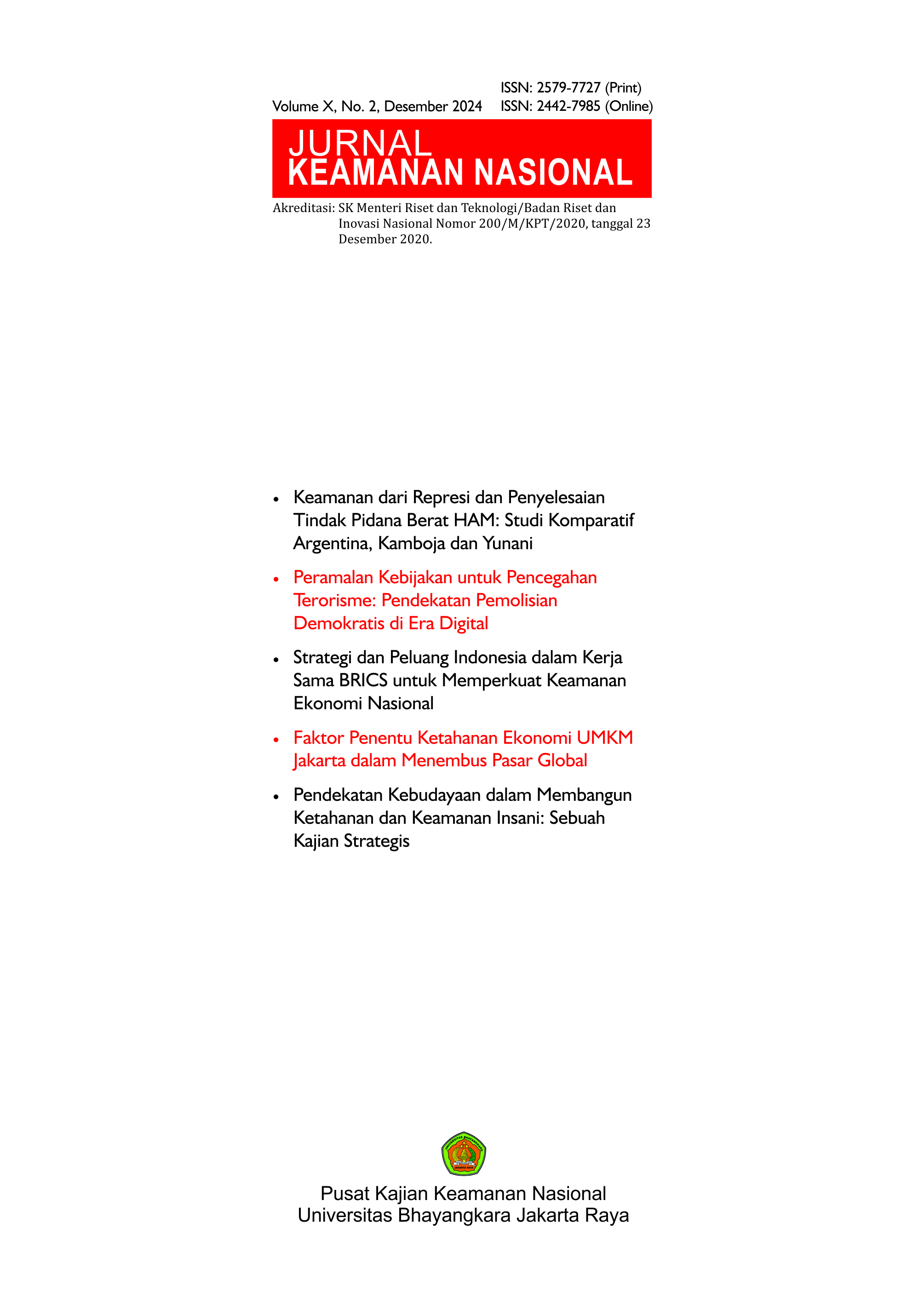Pendekatan Kebudayaan dalam Membangun Ketahanan dan Keamanan Insani: Sebuah Kajian Strategis
DOI:
https://doi.org/10.31599/2ay4k921Keywords:
Culture; Van Peursen; Sustainable StrategyAbstract
This article examines the concept of culture as a sustainable strategy according to Cornelis Anthonie van Peursen, a philosopher who views culture as a fundamental instrument for human survival and adaptation. Van Peursen outlines the development of culture through three main stages: myth, ontology, and function, each reflecting the evolution of how humans understand and manage reality. In the context of rapid globalization and technological change, this article highlights the relevance of Van Peursen's approach in addressing contemporary challenges, such as identity crises and environmental changes. This analysis also identifies the strengths and limitations of Van Peursen's perspective and offers reflections on the role of culture as a dynamic strategy that can help modern society achieve social and ecological sustainability. Thus, this article contributes to a deeper understanding of culture as an essential adaptive mechanism for human survival.
Downloads

Downloads
Published
Issue
Section
License
Copyright (c) 2024 Dr. Sugeng, S.H., M.H, Diana Fitriana, S.H., M.H, Widya Romasindah Aidy, S.Psi., M.H (Author)

This work is licensed under a Creative Commons Attribution 4.0 International License.
Please read and understand the copyright terms for submissions to this journal.
Copyright Notice
The Jurnal Keamanan Nasional is under the Creative Commons Attribution 4.0 International (CC-BY 4.0) License, according to which:
1) Authors retain copyright and grant the journal the right to first publication, with the work simultaneously licensed under the Creative Commons Attribution (CC-BY 4.0) that allows the sharing of articles published with the acknowledgement of authorship and the initial publication in this journal.
2) The authors are authorized to make additional contracts separately for distribution of the version of the work published in this journal (for example, publication in an institutional repository or as a chapter of the book), as long as there is recognition of authorship and initial publication in this journal.
3) Authors are authorized and encouraged to publish and distribute their work online (for example, in institutional repositories or on their personal pages) at any time before or during the editorial process, as it increases the impact and reference of the published work.












